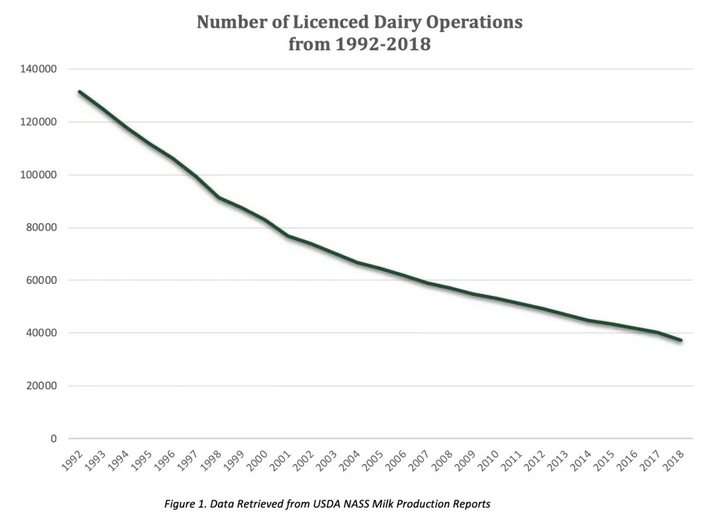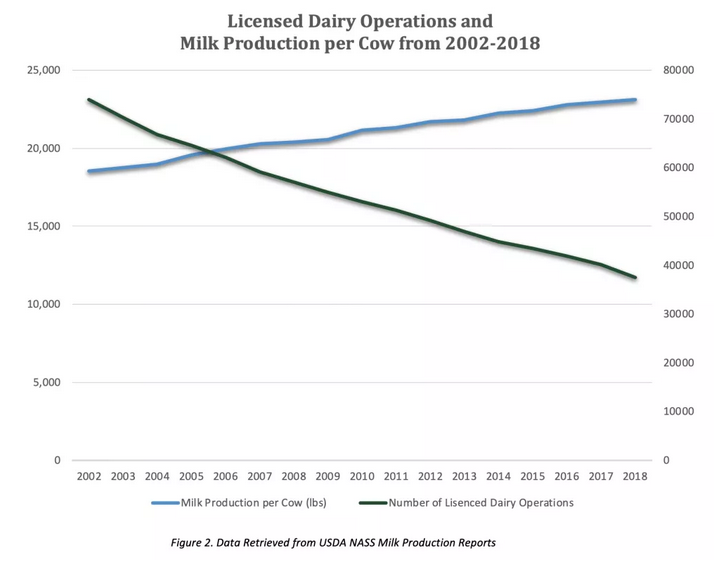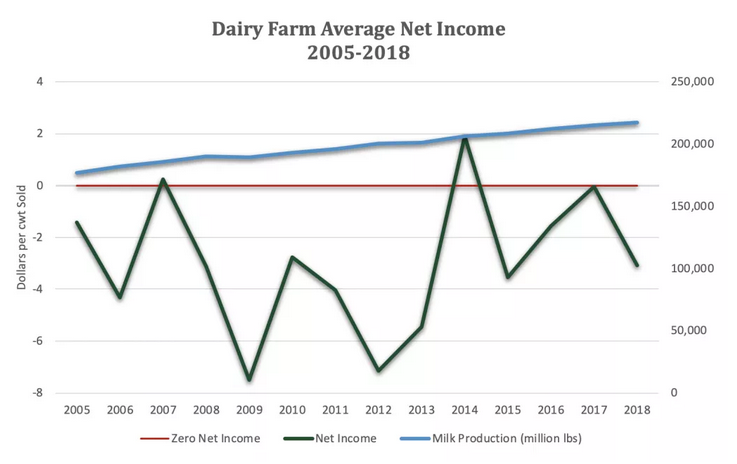National Farmers Union: It’s Time to Reform the U.S. Dairy Industry
by Allison Kaika, NFU Intern | June 18, 2019
June is National Dairy Month, making it a good time to highlight the important role family dairies play in the global food system, while also reflecting on the economic difficulties that America’s dairy farmers are currently facing. The American dairy farm is a cornerstone in United States’ agriculture. Over the years, dairies have proved to be central to rural communities, providing a crucial source of income and way of life for thousands of families.
Millions of Americans, and many people across the globe, enjoy the flavor and nutritional benefits of America’s dairy products. In its many forms, dairy is an important source of vitamin D, calcium, and protein for young children, elderly adults, and everyone in between. Whether it’s a cool glass of milk, a bowl of ice cream, or a melty grilled cheese, dairy remains a staple of healthy diets.
Dairy isn’t just a healthy and delicious food group – it also contributes significantly to the American economy. Reports show that the dairy industry accounts for 1 percent of the U.S. Gross Domestic Product (GDP), generating an economic impact of $628 billion. The industry also creates nearly 3 million U.S. jobs that generate around $159 billion in wages. The significance of dairy to the rural, agricultural economy cannot be overstated.
American dairies provide a vital source of income to rural families. The overwhelming majority of dairy farms are family owned and operated, keeping earnings in rural areas and stimulating the rural economy. The average size of a dairy farm herd is around 250 cows, and farms with fewer than 200 cows account for 87 percent of all dairy farms.
But while America’s family dairy farmers continue to work hard to provide milk, jobs, and a sustainable future for their families, unmanaged milk inventories and unfair prices have made it impossible for most dairy operations to make a profit.
Since the turn of the century, the number of U.S. dairy farms has rapidly declined. From 1992 to 2018, over 94,000 family dairies closed their doors at the rate of 10 dairy farms per day. Unfortunately, this trend has continued at a steady pace. Just in the last year, 2,731 dairy farms went out of business.
Amidst the continuous decline of dairy farms, the production of milk has not slowed. In fact, as demonstrated in the graph below, in the past decade alone, milk production has increased 14.5 percent and milk production per cow has increased 13.5 percent.
Despite important advances in technology, the efficient increase in production per cow has led to an oversupply in the market. This oversaturation has, in turn, driven milk prices well below the cost of production. Without market opportunities, dairy farmers are forced to grow their operation or go out of business.
In 2018, the average national value of milk production per hundredweight was $3.10 less than total costs of production, leaving many dairy farmers without the option to continue farming. Over the past decade, the average dairy farm net income was negative in all but one year. At times, it even dropped a shocking $7.17 per hundredweight below the total cost of production.
Current profit margins for dairy farmers are obviously unsustainable. In an attempt to improve their margins, many dairy farms have increased their production size and new mega-dairies have opened. As of 2017, operations with more than 2,500 cows account for just 1.3 percent of dairy farms but claim a whopping 35.3 percent of the total value of milk production. As the industry becomes increasingly consolidated, family dairies are at an even further disadvantage in the marketplace.
National Farmers Union (NFU) has long advocated for America’s dairy farmers. As the gap in profit and cost widens and competition wanes, NFU continues to support the creation of a long-term supply management program to balance milk supply and demand. Without a management system in place, chronic oversupply will continue to depress prices.
To address these issues, NFU’s members passed a Special Order of Business at the organization’s 2019 convention. The order proposes the establishment of an incentives-based inventory management program grounded in market demand and pricing stability. To implement this program, NFU recommends instituting a farmer-led plan to establish fair milk prices based on cost of production and retail prices for dairy products.
The economic challenges faced by dairy farmers must be addressed. As America appreciates milk, yogurt, cheese, and more during dairy month, NFU also reminds our policy makers of the dire need for reform in the U.S. dairy system.


